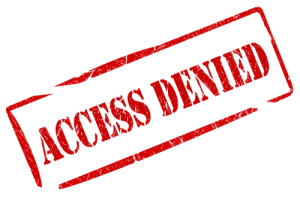 The American Civil Liberties Union (ACLU) of Rhode Island recently published a report documenting how the implementation of flawed internet filtering software in Rhode Island public schools has denied the state’s teachers and students access to educational information.
The American Civil Liberties Union (ACLU) of Rhode Island recently published a report documenting how the implementation of flawed internet filtering software in Rhode Island public schools has denied the state’s teachers and students access to educational information.
In its report, entitled “Access Denied: How Internet Filtering in Schools Harms Public Education,” the ACLU of Rhode Island details how some school administrators use a combination of “virtually unbridled discretion” and advanced internet filtering software to restrict teachers and students, often times in ways that would “never be tolerated for offline lessons.”
The full report (which is available here) lists several documented examples of school administrators using the filtration software to deny teachers and students access to traditionally appropriate subject matter. Some examples highlighted in the report include:
- School administrators denying access to: the Smithsonian website, the Goodreads.com book recommendation site, a video clip of the Nutcracker ballet, a website on global warming, a YouTube video on Social Security, and the websites of PBS Kids and National Stop Bullying Day.
- School administrators setting up filtering categories that prevent access to websites categorized under the “Lifestyle & Culture” label, which subsequently blocks students’ access to gay rights websites.
- School administrators using “safe search” keyword blocking, which, in one instance, prevented students from access websites for a class assignment involving a synthetic polymer known as polyvinyl alcohol because the search for information contained the word “alcohol.”
These are just a few examples of how filtering software interfered with the ability to access Constitutionally-protected speech in Rhode Island schools. To help curb such activity, the ACLU recommends that school districts everywhere develop meaningful, non-intrusive internet filtration policies. In its report, it lays out several best practices and policy recommendations school districts can adopt to prevent unwarranted censorship. The most important of these recommendations included increased transparency and a means of holding administrators responsible when they run afoul of the First Amendment.
Just as the excessive use of internet filtering software in schools has the potential to seriously infringe teachers’ and students’ First Amendment rights, so too can it affect the rights of the artists, creators, illustrators, and cartoonists that create content the software undeservedly restricts. For this reason, CBLDF frequently reports on and stands against laws and policies that impact the ability to access content that is protected by the First Amendment.
Please help support CBLDF’s important First Amendment work and reporting on issues such as this by making a donation or becoming a member of the CBLDF!